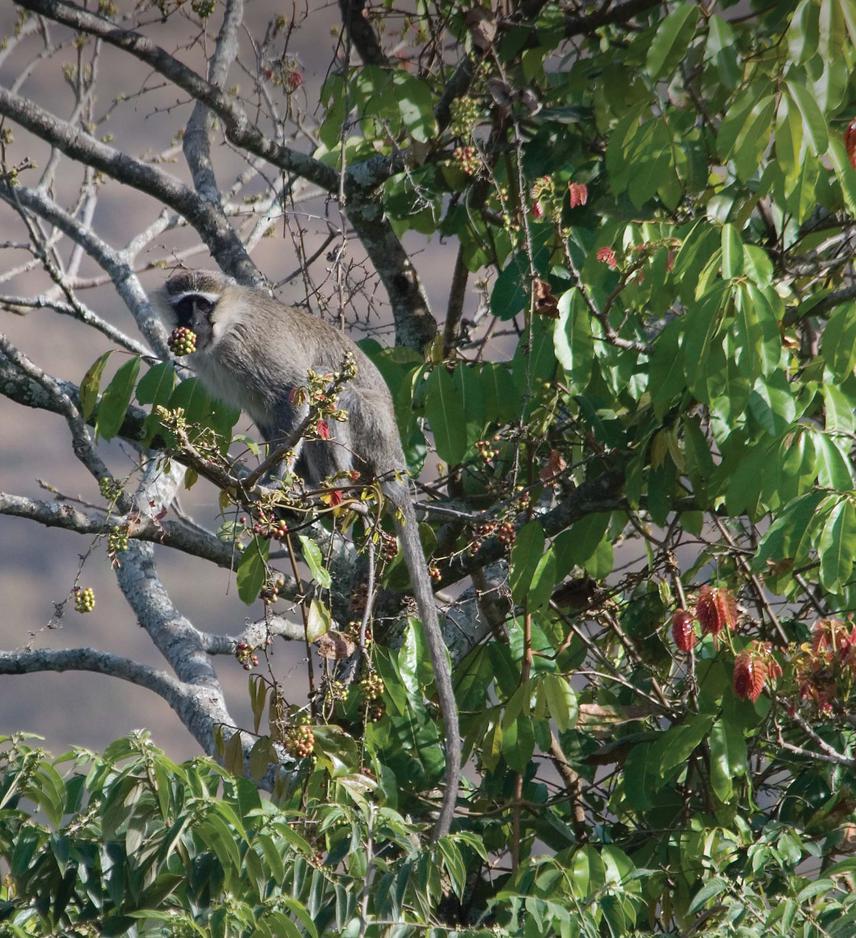Hazel Chapman
Other projects
12 Sep 2002
Biodiversity within the Remote, Plant-Rich Forests of Taraba and Adamawa States, Nigeria
The aim of this project is to investigate the role of primates and avian frugivores in seed dispersal, in order to predict the long term consequences to forest structure of primate loss.

Tantalus monkey in Ngel Nyaki forest. © Matt Walters, School of Biological Sciences, UC
West African montane forests are extremely rare and survive mainly because of their remote location and inaccessibility. They are rich in Endangered plant and animals species, including the montane forest trees Entandrophragma angolense and Pouteria altissima, and the Nigerian Chimpanzee (Pan troglodytes vellerosus) and putty nose monkey (Cercopithecus nictitans martini).
However hunting is threatening primate populations.
The Nigerian Montane Forest Project has begun research aimed at understanding the role of seed dispersal in Nigeria’s Montane Forests, forests above 1500 m in elevation). The building of a field station at Ngel Nyaki forest sponsored by Nexen Nigeria, has made this Rufford sponsored research possible.
The aim of this project is to investigate the role of primates and avian frugivores in seed dispersal, in order to predict the long term consequences to forest structure of primate loss.